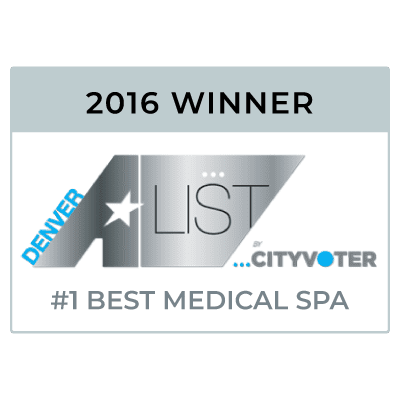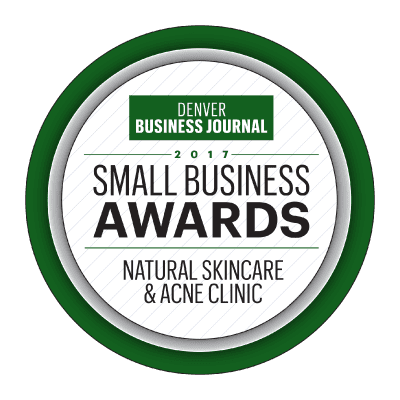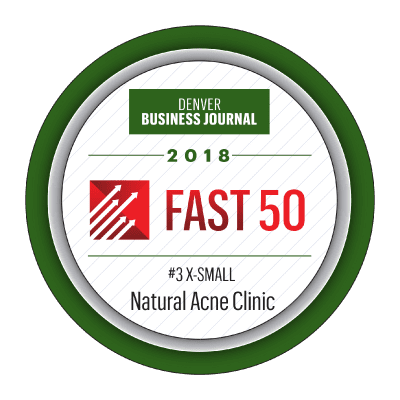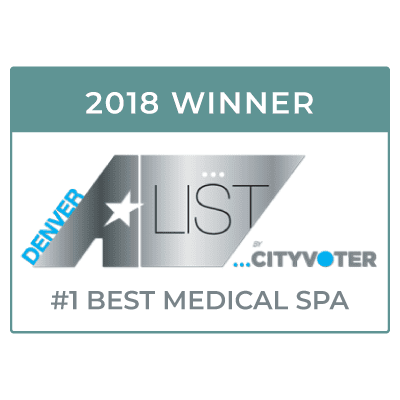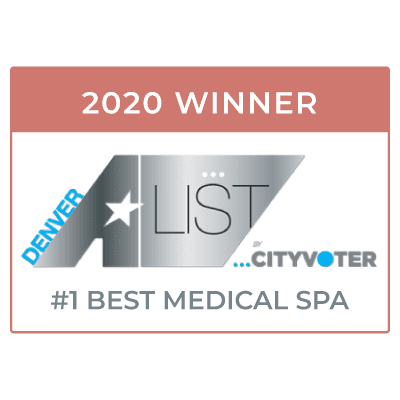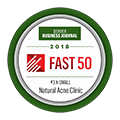Do you know YOUR primary acne cause? Still struggling with an unsure self-diagnosis?
We created a short quiz to help you Discover YOUR Acne Cause

Did you know that having food sensitivities (also known as food intolerances) can contribute to your acne?
If you’re eager to clear your skin, it’s important to know the symptoms so you can eliminate these foods from your diet.
I’ll explain the link between food sensitivity and acne in a moment. But first, let’s clear up any confusion between food sensitivity and allergy.
Food allergy is an immune system response to eating a certain food.
Food allergy impacts about 3 percent of the adult population, and is most commonly triggered by proteins found in shellfish, tree nuts, peanuts, and other fish.
A food allergy response can be mild to severe, and symptoms can occur within moments or up to a couple of hours of having even a tiny taste of an allergy-causing food.
Common symptoms include:
-
- Tingling or itching inside the mouth and on the lips.
-
- Hives, itching or eczema.
-
- Swelling of the lips, tongue, throat and other body parts.
-
- Wheezing, nasal congestion or trouble breathing.
-
- Abdominal pain, diarrhea, nausea or vomiting.
-
- Dizziness, lightheadedness or fainting.
-
- Anaphylaxis—including life threatening symptoms such as constriction of the airways, shock and severe drop in blood pressure, dizziness and loss of consciousness.
Food sensitivity refers to difficulty in digesting certain foods.
Almost everyone has experienced digestive upset because of something eaten.
And though annoying and uncomfortable, food sensitivity is not an immune system response. It happens when something you consume irritates your digestive system or you’re unable to properly digest the food. It may also take consuming a larger quantity of the food or greater frequency before you experience symptoms.
Typical symptoms include bloating, stomach cramps, nausea, gas, diarrhea, vomiting, headache and heartburn along with frequent illness, eczema and psoriasis, joint pain and autoimmune disorders.
There are several common causes including:
-
- Absence of an enzyme needed to fully digest a food. For example, without lactase, you’ll have difficulty digesting lactose, the main sugar in dairy products. When you consume dairy, you can end up with bloating, cramping, diarrhea, and excess gas.
-
- Preservatives and additives. Sometimes it’s not the food you have a problem with but how it’s made. For instance, processed foods have many stabilizers and preservatives which could trigger symptoms.
-
- Food enhancers like MSG. Watch out, MSG isn’t just in Chinese food! It’s in many processed foods like chips, cold cuts, frozen dinners, snacks, soy sauce, cookies, fast food and more. It is often called “natural flavors” on an ingredient label.
-
- Gluten intolerance. Do you experience bloating, regular diarrhea or constipation, abdominal pain or even brain fog or headaches after consuming pasta, pizza, bread, cookies or pastries? You may have a sensitivity to gluten, a protein found in wheat, barley or rye.
Celiac disease is the most severe form of gluten intolerance. It’s an autoimmune disease that affects about 1% of the population and damages the surface of your small intestine, leading to an inability to absorb certain nutrients.
If you have a sensitivity to certain foods and keep eating them, you can create chronic inflammation in your gut. Inflammation in your gut can lead to Leaky Gut Syndrome—and persistent acne.
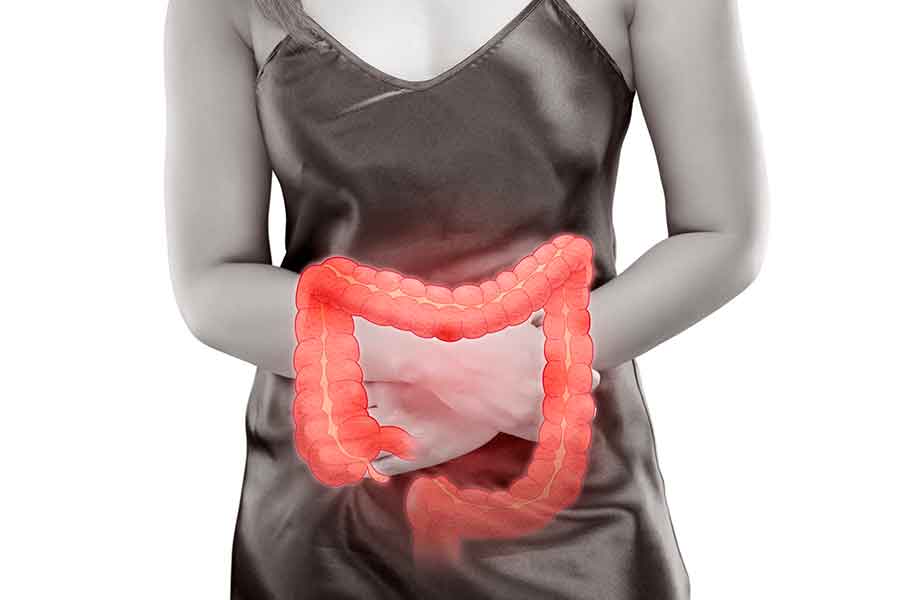
Have you heard of Leaky Gut Syndrome? This is a sign of major gut imbalance and is key connection between food sensitivity and acne.
The leaky gut disorder begins in the small intestine, which is vitally important to our health. This is where the majority of vitamins and minerals from food are absorbed because the wall of the small intestine allows them to flow into the bloodstream.
However, with Leaky Gut, the tight junctures of the intestinal wall widen and allow undigested food particles, toxins, bad bacteria and proteins (such as gluten) to seep through and into your bloodstream. Because these particles are foreign invaders, the body tries to “fight” them. This causes systemic inflammation. Over time, your body will start to identify certain foods as toxic and will facilitate an immune reaction each time you eat that food.
And the resulting systemic inflammation in your body inflames your acne.
The initial symptoms of leaky gut are:
-
- Skin issues such as acne and eczema
-
- Bloating
-
- Gas
-
- Irritable Bowel Syndrome (IBS)
-
- General dis-ease after eating certain foods
-
- Frequent colds and flu
Foods that aggravate leaky gut include:
-
- Cow’s dairy
-
- Gluten
-
- Sugar
-
- GMO (genetically modified organisms)
-
- Unsprouted grains and soy
-
- Any food that you overeat (lack of variety in the diet)
While food sensitivities and Leaky Gut Syndrome can make your acne worse, they’re not the ROOT cause of your acne.
Acne is a genetic condition called retention hyperkeratosis.
Every day a layer of dead skin cells is shed inside the pore. Ordinarily, these dead skin cells are pushed from behind by newer cells rising to the skin’s surface, then flake off in a normal, healthy pore.
However, this continuous shedding process goes haywire in people with acne. Acne-prone skin produces up to 5x more dead cells than normal, and the excess dead cells stay stuck on the skin’s surface and clog your pores. The resulting plug (known as a microcomedone), when mixed with oil, forms a blackhead. When infected with bacteria, forms a blemish.
Essentially, your acne-prone skin is perpetually clogging itself and it continually forms under the skin up to 90 days before you see it surface.
In addition, there are four acne triggers that are likely aggravating and perpetuating your acne.
Here are quick summaries of each trigger and how you can treat them:
GUT IMBALANCE
Breakouts related to gut imbalance occur on the cheeks and side of face by the ears.
Food sensitivity and Leaky Gut are considered part of the Gut Imbalance trigger. Other symptoms include bloating, gassiness, skipping bowel movements, stomach aches and cramping. The most common gut issue is constipation. You should be having 2 bowel movements a day. Yes, two! If not, you can naturally rebalance your gut microbiome with therapeutic-grade Probiotics (such as our Clove Hill Clear Skin Probiotic-10), Oil of Oregano and Fish Oil.
HORMONES
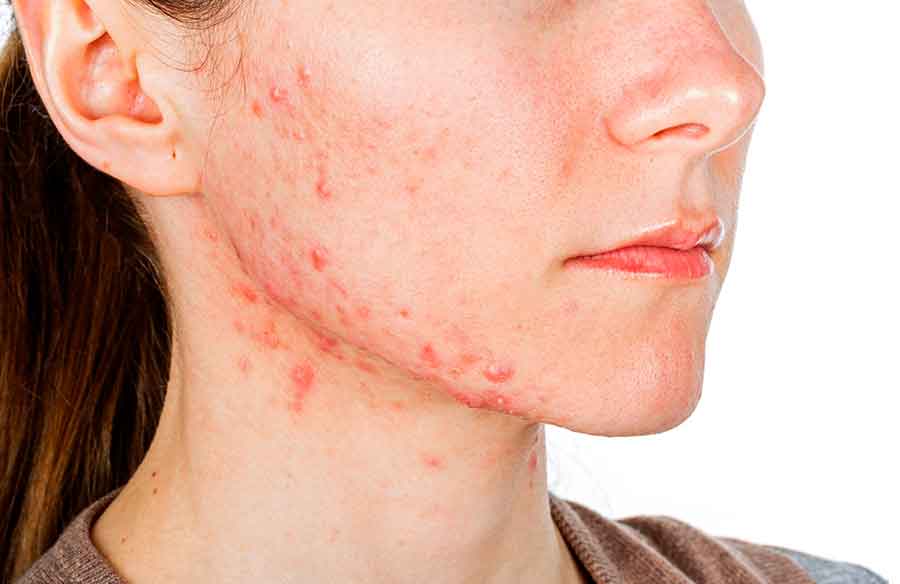
As a female, you’ll most likely experience hormonal acne around the mouth, chin and along the jawline.
And the week prior to your period is when the most hormonal acne flares up. Finding your body’s healthy balance of estrogen, progesterone and androgen is one of the critical keys to eliminating acne. I prefer using a tailored regimen of herbs as opposed to birth control pills. Using herbal supplements allows your body to naturally rebalance itself without harmful side effects.
STRESS
Stress is the trickiest of all the acne triggers as it can show up, at least a little bit, in just about everyone.
Stress-induced acne breakouts usually occur within 48 hours of a stressful event. If you suspect you have this trigger, pay close attention to timing. You can naturally relieve stress with proven selfcare methods like exercise, mindful breathing techniques, meditation and laughter. In addition, the right supplement for acne-prone skin (such as our Clove Hill Adrenal Stress Formula) can provide the missing nutrients you need to strengthen, support and rebuild your adrenal glands.
DIET
Bet you’ve heard this again and again―chocolate and French fries trigger acne. Nope!
Research has proven that’s a myth. Instead, many common “good-for-you” foods trigger your breakouts because they contain iodine or androgens. Diet and acne breakouts occur 24 to 48 hours after eating acne-triggering food including cow’s milk, peanut butter, sea plants and shrimp. Once you identify and stop eating foods triggering your acne, your skin can begin to recover from this trigger. Try substituting in new favorites like almond milk, cashew butter and freshwater fish to continue enjoying satisfying meals.
Ready to clear your acne once and for all? We can help.
From our experience treating thousands of clients, acne usually appears to be triggered by a combination of issues, rather than one. That’s why a typical one-size-fits-all approach rarely works when it comes to clearing and controlling acne over the long run.
If you have tried it all and still have acne, our comprehensive 16-week Online Acne Program is the answer. Our Online Acne Program has a 95% success rate helping thousands of clients get clear. We can help you too!
Get started on your journey to clear by booking an Online Acne Consult today.
